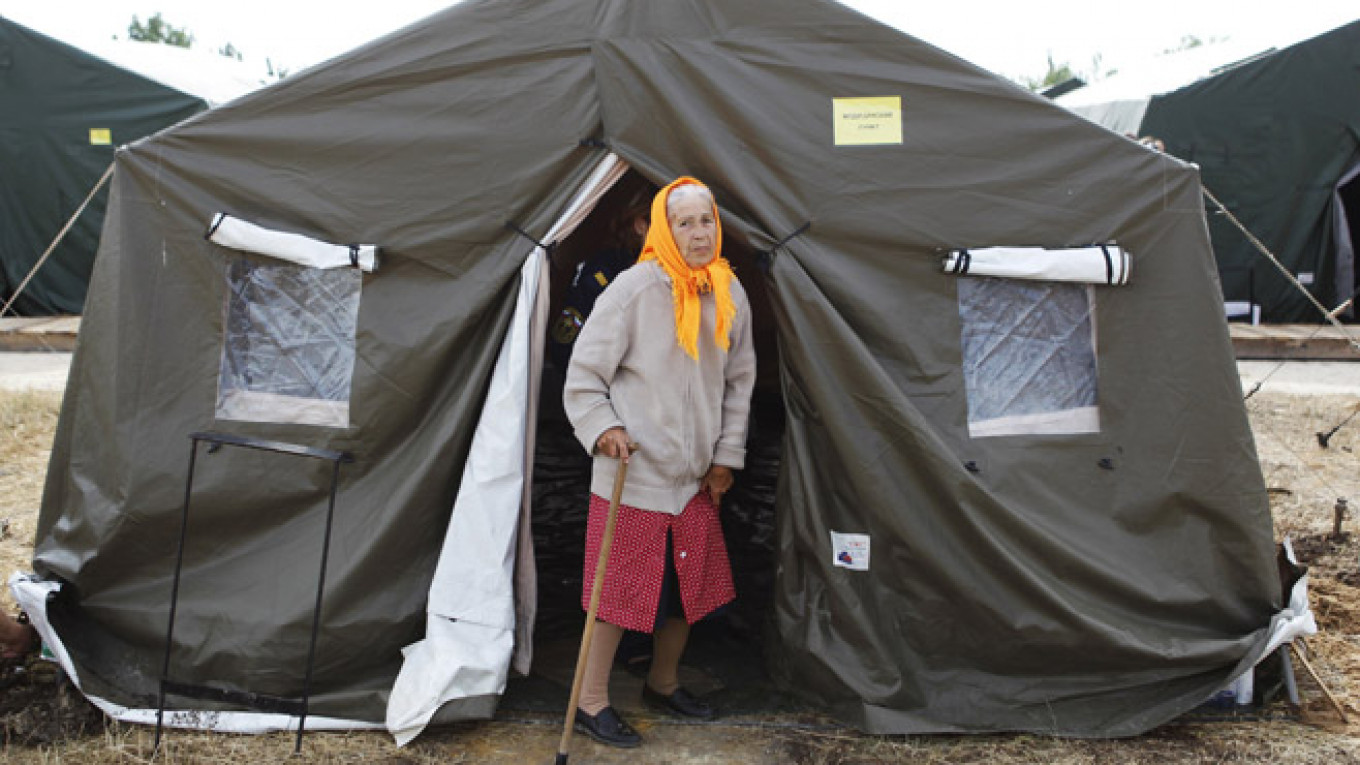As Ukrainian forces move to wrest control of eastern Ukraine back from pro-Russian separatists, some are predicting that the Kiev is, gradually but surely, taking back control of the country.
However, my experience as a presidential elections monitor in Izium, a city located in eastern Ukraine's Kharkiv region, indicates that peace will not come so quickly.
Izium, the headquarters of the Ukrainian government's anti-terrorist operation, is just 40 kilometers from Slovyansk, which has seen some of the worst fighting between government forces and pro-Russian separatists in eastern Ukraine.
I had the worst fears about what might happen. The Ukrainian Congress Committee of America, or UCCA, which sent me there, had warned us that the police in the Kharkiv region were "not on our side." I had even made out a will before I left the U.S., and friends had almost talked me into bringing body armor.
Yet election day wound up being orderly and peaceful. I saw polling stations where people did their jobs diligently and professionally, with no serious violations taking place. The elections on the surface seemed uneventful. The only soldiers I saw were going to the market for groceries, albeit on armored personnel carriers and jeeps.
Despite all the warnings about what Izium could be like, our mission turned out to be rather dull, and the elections, which brought politically moderate Petro Poroshenko to power, were successful.
The sense of order and peace, however, did not mean that Izium was headed for normalcy.
One Euromaidan activist, Oleg, told me that most of Izium's residents saw the Euromaidan protests in Kiev as dominated by unemployed people from western Ukraine seeking work. They believed, moreover, that Kiev's revolution endangered their own jobs, no matter how little those jobs paid.
Election day suggested that distrust of Kiev was real and deep. While our UCCA colleagues in western and central Ukraine saw long lines and voters festively dressed in Ukrainian embroidered shirts, I saw no such celebratory mood. At the last polling station I visited, the final turnout was just 32 percent.
While there was no war in Izium, it was on people's minds. At the medical college's polling station, a male voter in his thirties, who was drunk, high, or simply frustrated by the poll workers making fun of him, left his voting booth and announced, "I do not believe anyone. If there wasn't a war…"
Then, after ripping up his ballot, he stuffed its remains into the ballot box, declaring, "It is my guys who are getting killed, and you…" He muttered some kind of obscenity before storming out of the room.
I asked local elections observers and polling station workers what they knew about the war near Izium. A polling station worker dismissed our fears, adding: "Guys, if they didn't meddle — Russia, the U.S. — we would be better off."
We stayed to watch the official count of ballots at one station. Poroshenko led with 211 votes, but he was followed closely by the combined votes of the pro-Russian Party of Regions candidate, Mykhailo Dobkin, with 102 votes, and former Party of Regions member Serhiy Tyhipko, with 91 votes. In the Kharkiv region, Poroshenko only won 35 percent of the vote.
If Poroshenko offers a turning point in Ukraine's crisis, he has a lot of work to do in Izium, and in other parts of eastern Ukraine that are still in government hands. Distrust of Kiev and Euromaidan has left most residents of Izium with no one to represent them.
William Risch, associate professor of history at Georgia College, is author of "The Ukrainian West: Culture and the Fate of Empire in Soviet Lviv" (Harvard University Press, 2011).
A Message from The Moscow Times:
Dear readers,
We are facing unprecedented challenges. Russia's Prosecutor General's Office has designated The Moscow Times as an "undesirable" organization, criminalizing our work and putting our staff at risk of prosecution. This follows our earlier unjust labeling as a "foreign agent."
These actions are direct attempts to silence independent journalism in Russia. The authorities claim our work "discredits the decisions of the Russian leadership." We see things differently: we strive to provide accurate, unbiased reporting on Russia.
We, the journalists of The Moscow Times, refuse to be silenced. But to continue our work, we need your help.
Your support, no matter how small, makes a world of difference. If you can, please support us monthly starting from just $2. It's quick to set up, and every contribution makes a significant impact.
By supporting The Moscow Times, you're defending open, independent journalism in the face of repression. Thank you for standing with us.
Remind me later.






